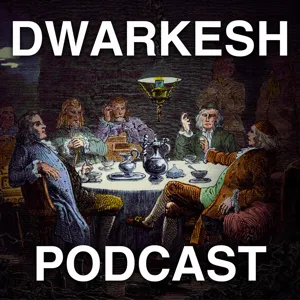Can effective altruism be redeemed?

Explore "utilitarianism" with insightful episodes like "Can effective altruism be redeemed?", "Holden Karnofsky - Transformative AI & Most Important Century", "#484 - Cosmic Skeptic - 8 Impossible Thought Experiments", "From the Vault: Brain and Head Theft, Part 2" and "#214 - Cosmic Skeptic - How Do We Define What Is Good & Bad?" from podcasts like ""The Gray Area with Sean Illing", "Dwarkesh Podcast", "Modern Wisdom", "Stuff To Blow Your Mind" and "Modern Wisdom"" and more!


Holden Karnofsky is the co-CEO of Open Philanthropy and co-founder of GiveWell. He is also the author of one of the most interesting blogs on the internet, Cold Takes.
We discuss:
* Are we living in the most important century?
* Does he regret OpenPhil’s 30 million dollar grant to OpenAI in 2016?
* How does he think about AI, progress, digital people, & ethics?
Highly recommend!
Watch on YouTube. Listen on Apple Podcasts, Spotify, or any other podcast platform. Read the full transcript here.
Timestamps
(0:00:00) - Intro
(0:00:58) - The Most Important Century
(0:06:44) - The Weirdness of Our Time
(0:21:20) - The Industrial Revolution
(0:35:40) - AI Success Scenario
(0:52:36) - Competition, Innovation , & AGI Bottlenecks
(1:00:14) - Lock-in & Weak Points
(1:06:04) - Predicting the Future
(1:20:40) - Choosing Which Problem To Solve
(1:26:56) - $30M OpenAI Investment
(1:30:22) - Future Proof Ethics
(1:37:28) - Integrity vs Utilitarianism
(1:40:46) - Bayesian Mindset & Governance
(1:46:56) - Career Advice


First they came for their heads. Then they came for their brains. In this classic Stuff to Blow Your Mind two-parter, Robert and Joe discuss the weird and fascinating history of head and brain preservation, veneration and theft. (originally published 2/4/2021)
Learn more about your ad-choices at https://www.iheartpodcastnetwork.com
See omnystudio.com/listener for privacy information.


When we are asked to make a moral choice, many of us imagine it involves listening to our hearts. To that, philosopher Peter Singer says, "nonsense." Singer believes there are no moral absolutes, and that logic and calculation are better guides to moral behavior than feelings and intuitions. This week, we talk with Singer about why this approach is so hard to put into practice, and look at the hard moral choices presented by the COVID-19 pandemic.


In the last decade or so, books, blogs, corporations, and even governments are putting more emphasis on the idea of happiness. On the surface, this sounds great, but our guest today argues that maybe this should give us some pause. William Davies is the author of The Happiness Industry, and makes the case that this focus on happiness may be more about dollar signs than our actual well-being.

Stay up to date
For any inquiries, please email us at hello@podcastworld.io